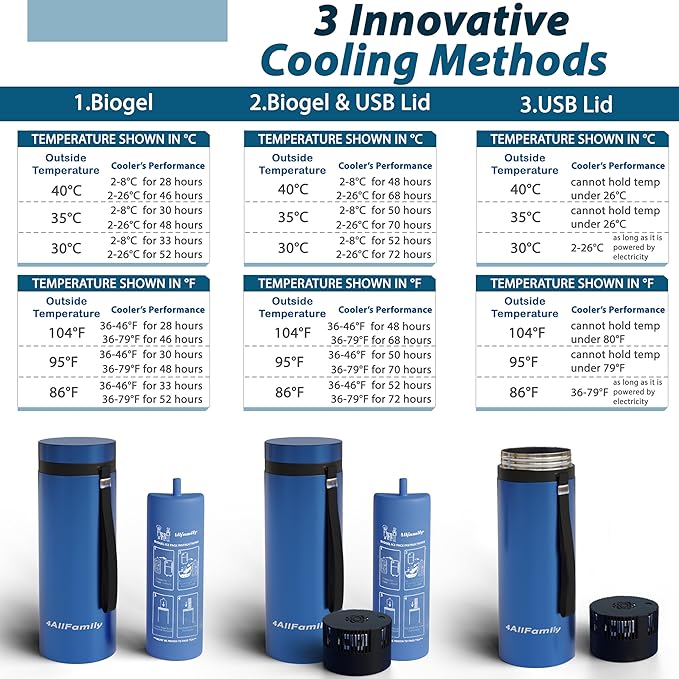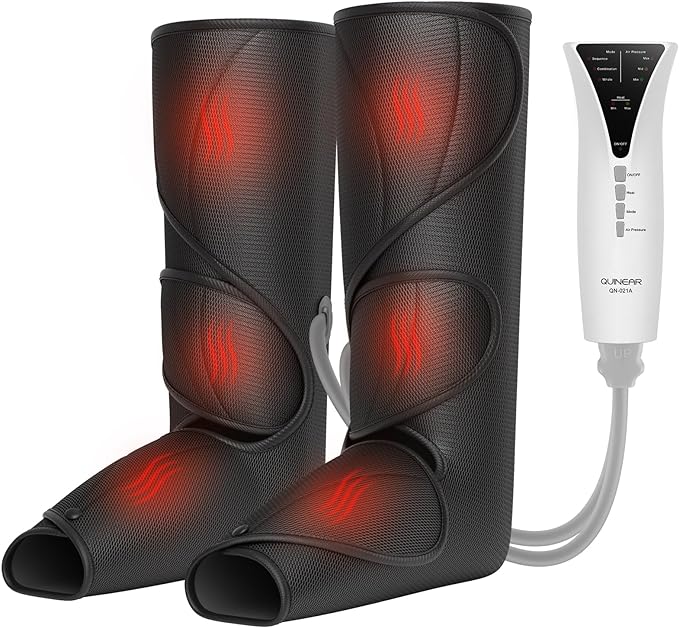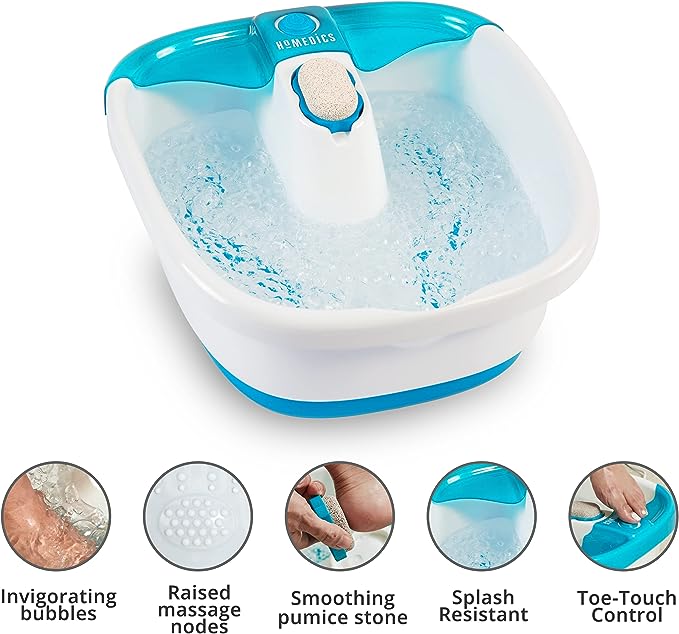Type 1 Diabetes Self-Care: Empowering Yourself for a Healthier Life
Type 1 diabetes is an autoimmune condition where the pancreas produces little to no insulin, a hormone vital for allowing sugar (glucose) to enter cells to produce energy. This type differs significantly from Type 2 diabetes, where the body becomes resistant to insulin or doesn't produce enough, often related to lifestyle factors.
The Importance of Early Diagnosis
Early diagnosis of Type 1 diabetes is crucial for several reasons, not least because it can significantly mitigate the risk of severe complications and set the foundation for effective long-term disease management. Let's delve deeper into why catching the disease early is so vital and what it entails.Recognizing the Symptoms
The early signs of Type 1 diabetes can often be subtle and easily mistaken for other conditions, which makes awareness crucial. Key symptoms include:- Excessive Thirst and Frequent Urination: As excess glucose builds up in the bloodstream, the kidneys work harder to filter and absorb it, leading to increased urine production and, subsequently, a greater need for fluids.
- Increased Hunger: Despite eating more, people with untreated Type 1 diabetes experience energy depletion because their cells can't access glucose for fuel.
- Unintended Weight Loss: Without the ability to use glucose, the body begins to burn fat and muscle for energy, resulting in weight loss.
- Fatigue: When cells lack glucose, the body becomes deprived of energy, leading to feelings of weakness and tiredness.
- Vision Changes: High blood sugar levels can cause the lens of the eye to swell, affecting vision.
Consequences of Delayed Diagnosis
Ignoring the signs of Type 1 diabetes can lead to several serious, even life-threatening conditions: Type 1 Diabetes Self-Care: Empowering Yourself for a Healthier Life- Diabetic Ketoacidosis (DKA): If cells do not receive enough insulin to break down glucose, the body starts to use fat as an alternative source of fuel, producing ketones. High levels of ketones can poison the body, leading to DKA, which is potentially fatal if not treated promptly.
- Dehydration: The frequent urination that occurs can lead to severe dehydration, which exacerbates the problem by further concentrating blood glucose levels.
- Weight loss and muscle wasting: Prolonged periods without proper glucose management can lead to significant weight loss and the loss of muscle mass.
- Compromised immune system: Over time, untreated Type 1 diabetes can weaken the immune system, making the body more susceptible to infections.
The Benefits of Early Intervention
Detecting Type 1 diabetes early can significantly improve the management of the condition. Early intervention allows individuals to:- Start insulin therapy quickly, which can help preserve some of the body's beta cell function, potentially making the disease easier to manage in the early stages.
- Prevent complications by managing blood sugar levels effectively from the beginning, thereby reducing risks associated with diabetes, such as heart disease, nerve damage, and kidney damage.
- Implement lifestyle changes sooner, including adjustments in diet, exercise, and possibly integrating technology like continuous glucose monitoring systems to better manage the condition.

Comprehensive Diabetes Management
Managing Type 1 diabetes effectively requires a comprehensive approach that encompasses various aspects of care. From monitoring blood sugar levels to insulin management, each component plays a critical role in maintaining optimal health and preventing complications. Type 1 Diabetes Self-Care: Empowering Yourself for a Healthier LifeBlood Sugar Monitoring Essentials
Blood sugar monitoring is a fundamental aspect of managing Type 1 diabetes. It involves regularly checking glucose levels to ensure they stay within a target range. Here's a closer look at the essentials of this practice:- Consistent Monitoring: Regular glucose testing helps to track the effects of diabetes management strategies and make necessary adjustments. It is essential for making informed decisions about diet, exercise, and insulin dosage.
- Tools for Monitoring: Individuals can use traditional fingerstick tests with a blood glucose meter or opt for continuous glucose monitoring systems (CGMs). CGMs provide real-time data on glucose trends, reducing the guesswork in diabetes management.
- Interpreting Data: Understanding the patterns in glucose levels can help predict and prevent extreme highs (hyperglycemia) and lows (hypoglycemia), crucial for immediate and long-term health.
Insulin Management
Insulin therapy is the cornerstone of Type 1 diabetes management since the body cannot produce insulin on its own. Effective insulin management involves:- Understanding Insulin Types: Various forms of insulin are used to manage blood sugar levels. They range from rapid-acting insulins, ideal for managing spikes during meals, to long-acting insulins, which help maintain baseline glucose levels over time.
- Administration Methods: Insulin can be administered through injections several times a day or delivered through an insulin pump. Pumps provide a steady amount of insulin through a small tube inserted under the skin.
- Dosage Adjustment: Dosage may need to be adjusted based on meal intake, exercise, illness, or changes in routine. Keeping a log of glucose levels, diet, and how much insulin is taken can help tailor dosing to individual needs.

Lifestyle Modifications
In addition to monitoring and insulin therapy, lifestyle changes are a vital part of managing Type 1 diabetes. These include: Type 1 Diabetes Self-Care: Empowering Yourself for a Healthier Life- Dietary Adjustments: Eating a well-balanced diet that minimizes spikes in blood sugar is crucial. This includes measuring carbohydrate intake, eating fiber-rich foods, and balancing meals with a good mix of carbohydrates, fats, and proteins.
- Physical Activity: Regular exercise helps improve insulin sensitivity, which can reduce the amount of insulin needed. It also helps manage weight, reduce stress, and improve overall well-being.
- Routine Management: Keeping a regular schedule for meals, activities, and medications can stabilize blood sugar levels and make the impact of insulin more predictable.
Regular Healthcare Consultations
Regular visits to a healthcare provider are essential for maintaining optimal diabetes management. These consultations may include:- Routine Check-Ups: Regular check-ups help assess how well diabetes is being managed and whether any adjustments need to be made to the treatment plan.
- Screenings for Complications: Diabetes can affect various body parts, including the eyes, kidneys, and nerves. Early screening for related complications can prevent serious health issues.
- Education and Support: Ongoing education about diabetes and its management can help individuals adapt to new technologies or changes in diabetes care recommendations. Support from healthcare providers can also address any psychological aspects of managing a chronic condition like diabetes.
Insulin Management
Insulin therapy is the cornerstone of Type 1 diabetes management since the body cannot produce insulin on its own. Effective insulin management involves:- Understanding Insulin Types: Various forms of insulin are used to manage blood sugar levels. They range from rapid-acting insulins, ideal for managing spikes during meals, to long-acting insulins, which help maintain baseline glucose levels over time.
- Administration Methods: Insulin can be administered through injections several times a day or delivered through an insulin pump. Pumps provide a steady amount of insulin through a small tube inserted under the skin.
- Dosage Adjustment: Dosage may need to be adjusted based on meal intake, exercise, illness, or changes in routine. Keeping a log of glucose levels, diet, and how much insulin is taken can help tailor dosing to individual needs.

Lifestyle Modifications
In addition to monitoring and insulin therapy, lifestyle changes are a vital part of managing Type 1 diabetes. These include: Type 1 Diabetes Self-Care: Empowering Yourself for a Healthier Life- Dietary Adjustments: Eating a well-balanced diet that minimizes spikes in blood sugar is crucial. This includes measuring carbohydrate intake, eating fiber-rich foods, and balancing meals with a good mix of carbohydrates, fats, and proteins.
- Physical Activity: Regular exercise helps improve insulin sensitivity, which can reduce the amount of insulin needed. It also helps manage weight, reduce stress, and improve overall well-being.
- Routine Management: Keeping a regular schedule for meals, activities, and medications can stabilize blood sugar levels and make the impact of insulin more predictable.
Regular Healthcare Consultations
Regular visits to a healthcare provider are essential for maintaining optimal diabetes management. These consultations may include:- Routine Check-Ups: Regular check-ups help assess how well diabetes is being managed and whether any adjustments need to be made to the treatment plan.
- Screenings for Complications: Diabetes can affect various body parts, including the eyes, kidneys, and nerves. Early screening for related complications can prevent serious health issues.
- Education and Support: Ongoing education about diabetes and its management can help individuals adapt to new technologies or changes in diabetes care recommendations. Support from healthcare providers can also address any psychological aspects of managing a chronic condition like diabetes.
Dietary Considerations for Type 1 Diabetics
Proper nutrition is crucial for managing Type 1 diabetes effectively. Dietary choices can significantly impact blood glucose levels, insulin sensitivity, and overall health. Let's explore the key dietary considerations that Type 1 diabetics should be aware of to optimize their health.The Role of Diet in Managing Type 1 Diabetes
Understanding the role of diet in diabetes management is essential for maintaining stable blood glucose levels and reducing the risk of complications. Here are some critical points: Type 1 Diabetes Self-Care: Empowering Yourself for a Healthier Life- Carbohydrate Counting: Carbohydrates have the most significant impact on blood sugar levels. Learning to count carbohydrates accurately can help manage this impact and make precise insulin dosing easier.
- Glycemic Index (GI): Foods are rated based on how quickly they raise blood glucose levels. Choosing low to medium GI foods can help maintain more stable blood glucose levels.
- Balanced Nutrient Intake: It's important to balance carbohydrate intake with fat and protein, which can help slow the absorption of sugar into the bloodstream and provide a more stable energy source.

Recommended Foods and Those to Avoid
Making informed food choices can help maintain better control over diabetes:- Recommended Foods:
- Whole Grains: Foods like brown rice, whole wheat, quinoa, and oats have a lower GI and provide essential fiber, which helps control blood glucose levels.
- Lean Proteins: Sources like chicken, turkey, fish, tofu, and legumes not only offer essential nutrients but also have minimal impact on blood sugar.
- Healthy Fats: Avocado, nuts, seeds, and olive oil can improve heart health without spiking blood sugar.
- Fruits and Vegetables: Most non-starchy vegetables and low-GI fruits (like berries, apples, and pears) are excellent for a diabetes-friendly diet.
- Foods to Avoid:
- High Sugar Foods: Sodas, candies, and desserts can cause rapid increases in blood glucose levels.
- Refined Carbohydrates: White bread, white rice, and pastries have high GIs and offer little nutritional benefit.
- Trans Fats and High-Fat Animal Products: These can worsen heart health, a concern for those with diabetes.
Practical Meal Planning Tips
Creating an effective meal plan involves more than just choosing the right foods. Here are some practical strategies:- Regular Meal Times: Eating at consistent times helps maintain stable blood glucose levels and improves the effectiveness of insulin therapy.
- Portion Control: Managing portion sizes helps control calorie intake and blood sugar levels, which is crucial for maintaining a healthy weight.
- Advanced Preparation: Preparing meals in advance can ensure that suitable food choices are available, reducing the likelihood of making poor dietary decisions on the spur of the moment.
- Diverse Menu: Including a variety of foods in the diet can prevent mealtime monotony and ensure a broad intake of essential nutrients.
Incorporating Superfoods
Some foods are particularly beneficial for Type 1 diabetics due to their nutrient density and minimal impact on blood sugar levels, such as: Type 1 Diabetes Self-Care: Empowering Yourself for a Healthier Life- Chia Seeds: These are high in omega-3 fatty acids, fiber, and protein, which help control blood glucose levels.
- Leafy Greens: Spinach, kale, and other greens are low in calories and carbohydrates but high in vitamins and minerals.
- Cinnamon: Some studies suggest that cinnamon can help improve blood glucose levels and insulin sensitivity.
The Impact of Physical Activity
Benefits of Exercise in Diabetes Management
Physical activity plays a crucial role in the overall management of Type 1 diabetes. It not only helps in controlling blood glucose levels but also contributes to better heart health, weight management, and psychological well-being. Here's a detailed exploration of how exercise impacts diabetes management and practical tips for incorporating physical activity into daily life.Benefits of Exercise in Diabetes Management
Exercise affects blood sugar management in Type 1 diabetes in several beneficial ways:- Improves Insulin Sensitivity: Regular physical activity makes the body more responsive to insulin, which can help to lower blood sugar levels for up to 24 hours or more after exercising.
- Lowers Blood Glucose Levels: Active muscles use more glucose, which helps to reduce blood sugar levels during and after exercise.
- Contributes to Weight Management: Maintaining a healthy weight can improve insulin sensitivity and is essential for overall health.
- Enhances Cardiovascular Health: Regular exercise helps reduce the risk of cardiovascular disease, which people with diabetes are at increased risk for.
Safe Exercises for Type 1 Diabetics
While exercise is beneficial, it's essential for people with Type 1 diabetes to choose safe activities that won't cause harmful fluctuations in their blood sugar levels. Recommended activities include: Type 1 Diabetes Self-Care: Empowering Yourself for a Healthier Life- Aerobic Exercise: Activities like walking, swimming, and cycling are excellent for cardiovascular health without overly stressing the body.
- Strength Training: Incorporating resistance exercises, such as using weights or resistance bands, can help build muscle mass, which is beneficial for blood sugar control.
- Flexibility and Stability: Yoga and Pilates can improve flexibility, muscle strength, and balance, contributing to overall physical health and stress reduction.
Developing a Sustainable Exercise Routine
Creating an exercise routine that is both sustainable and enjoyable is key to long-term success. Here are some strategies to consider:- Consultation with Healthcare Providers: Before starting any new exercise program, it's vital for individuals with Type 1 diabetes to consult with their healthcare provider. This ensures that any potential risks are managed, and adjustments to insulin or food intake are made if necessary.
- Start Slowly: For those new to exercise or returning after a break, it's important to start slowly and gradually increase the duration and intensity of workouts to prevent hypoglycemia (low blood sugar).
- Monitor Blood Sugar Levels: Monitoring glucose levels before, during, and after exercise can help prevent hypoglycemia and hyperglycemia (high blood sugar). It's also useful for understanding how different activities affect blood sugar levels.
- Stay Prepared: Always have a source of fast-acting carbohydrates on hand (like fruit juice or glucose tablets) in case blood sugar levels drop suddenly during exercise.

Tips for Motivation and Consistency
Maintaining motivation and consistency can be challenging, but these tips can help:- Set Realistic Goals: Setting achievable goals related to frequency, duration, or type of exercise can provide a sense of accomplishment and encourage persistence.
- Find Activities You Enjoy: Exercise doesn't have to be tedious. Finding activities that are enjoyable makes it easier to incorporate them into a regular routine.
- Exercise with Others: Working out with friends or joining a group can increase motivation and make physical activity more enjoyable.
- Keep a Log: Tracking workouts and their effects on blood sugar levels can help identify what works best and provide motivation to continue.
Psychological Aspects of Living with Type 1 Diabetes
Emotional Challenges and Coping Mechanisms
Living with Type 1 diabetes can be emotionally challenging. Feelings of anxiety or depression are not uncommon. Establishing a support network, seeking professional help, and practicing mindfulness are effective ways to cope with these challenges. A positive mindset can significantly impact diabetes management. Techniques such as positive affirmations and focusing on accomplishments rather than setbacks can foster resilience and improve overall well-being.Advanced Care Strategies
Effective management of Type 1 diabetes is constantly evolving, thanks to technological advancements and deeper insights into the disease. Here's an overview of advanced care strategies that can enhance quality of life and offer better control over this condition.Beyond Basics: Advanced Technologies and Treatments
The field of diabetes care has seen significant technological advancements that have revolutionized how patients manage their condition. Here are some of the most impactful technologies:- Continuous Glucose Monitors (CGMs): CGMs provide real-time insights into glucose levels, alerting users to highs and lows without the need for constant finger pricks. This technology enhances lifestyle flexibility and improves decision-making regarding diet and insulin administration.
- Insulin Pumps: These devices deliver continuous subcutaneous insulin infusion and can be programmed based on the user's varying insulin needs at different times of the day. Modern pumps can integrate with CGMs to automatically adjust insulin delivery in response to glucose levels, a system often referred to as an artificial pancreas.
- Closed-Loop Systems: Also known as hybrid closed-loop systems, these combine CGMs and insulin pumps to automate insulin delivery, closely mimicking the body's natural insulin response. This technology can significantly improve glycemic control and reduce the burden of constant management.
- Smart Insulin Pens: These pens track insulin doses and timing, syncing data with smartphone apps to help patients manage their insulin usage more effectively, providing reminders and dosage suggestions.
Personalizing Your Diabetes Care Plan
Diabetes management must be tailored to the individual's lifestyle, dietary preferences, and health needs. Here's how personalization can play a critical role in diabetes care:- Comprehensive Health Assessments: Regular assessments with healthcare providers help tailor diabetes management plans based on changes in lifestyle, health status, and preferences.
- Genetic and Biomarker Research: Emerging research into genetic markers and other biomarkers promises more personalized medicine approaches in the future, potentially predicting disease progression and tailoring treatments accordingly.
- Lifestyle Integration: Effective diabetes management integrates seamlessly with the individual's lifestyle. Personalizing exercise routines, dietary plans, and medication schedules can help maintain a higher quality of life.
Future Trends in Treatment and Management
The future of diabetes care includes promising trends and potential treatments that could further transform how this condition is managed:- Regenerative Medicine: Researchers are exploring ways to regenerate or replace beta cells, which are destroyed by the immune system in Type 1 diabetes. Techniques include stem cell therapies and gene editing.
- Immunotherapy: This involves modifying the immune system's response to prevent it from attacking pancreatic beta cells, potentially halting the progression of Type 1 diabetes.
- Smart Technology Integration: Advances in artificial intelligence and machine learning could lead to smarter diabetes management systems that predict individual needs and automate care more effectively.
Collaborative Healthcare Approaches
 A collaborative approach to healthcare can enhance the effectiveness of diabetes management through:
A collaborative approach to healthcare can enhance the effectiveness of diabetes management through:- Integrated Care Teams: A team that includes endocrinologists, dietitians, diabetes educators, and mental health professionals can provide comprehensive care tailored to all aspects of the individual's life.
- Patient Education and Empowerment: Educating patients about their condition and treatment options can empower them to take an active role in their care, improving outcomes and enhancing self-management.
Community and Support
Finding and Utilizing Support Networks
Support groups can provide invaluable emotional encouragement, practical tips, and a sense of community. Both online platforms and local groups offer spaces where individuals can share experiences and find support.Advocacy is crucial in promoting diabetes awareness and education. Being an advocate involves participating in community events, speaking out about the needs of those with diabetes, and supporting legislative efforts that protect and advance diabetes care.

